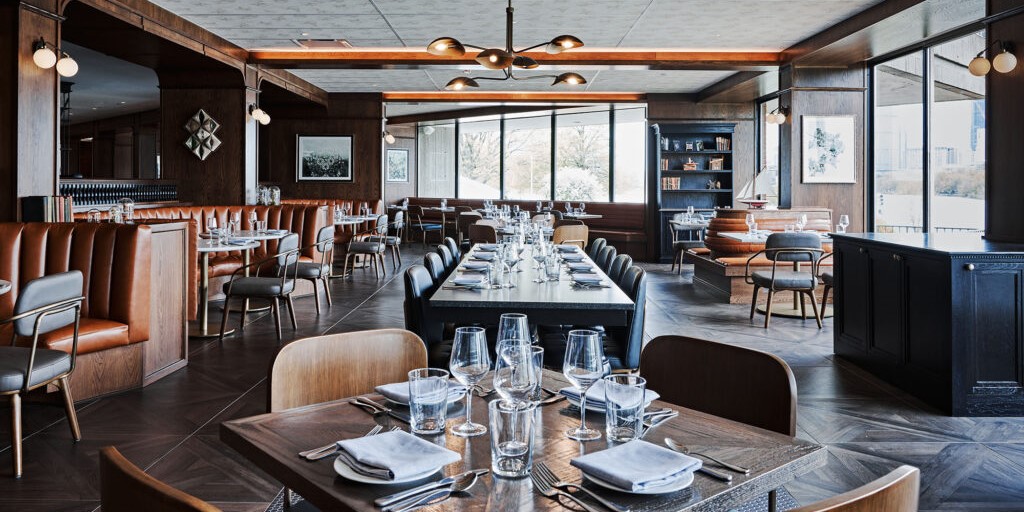Spearheaded by The Gettys Group and featuring contributions from the likes of Four Seasons Hotels and Resorts, Hilton Worldwide, IHG and Marriott International, the innovative global think tank has now released its findings.
The Hotel of Tomorrow Project has come up with a list of the five cutting-edge hospitality concepts deemed to have the greatest overall potential, ranging from re-envisioned public spaces to robots serving drinks. We find out more.
Looking to the future amid the pandemic
As hotels across the world attempt to adapt to the Covid19 crisis, hospitality specialists have been busy coming up with innovative new concepts to keep the wheels of business turning in these very different times. The Hotel of Tomorrow Project, a think tank led by The Gettys Group that brings together the expertise of 325 hospitality executives, has been meeting online over the past few months to come up with, review and test ideas.
“The Covid crisis has created a need for answers to questions hotels could not answer on their own,” said Ron Swidler, The Gettys Group’s chief innovation officer. “We needed to think beyond room-cleaning initiatives and air-purifying systems and develop long-lasting solutions that addressed health, safety, sanitation, technology, aesthetics and environmental concerns.”
A whole host of innovative ideas
Overall, the think tank produced 79 ideas, submitted by no fewer than 16 teams around the world. These were whittled down to five concepts, addressing guest-room experience, meeting space, restaurant operations, customer service and customer experience. The concepts were then shared with over 1,000 hospitality executives, who duly selected those with the most future potential.
The first choice among those surveyed was the Bed XYZ concept, an optimised sleep platform designed to enhance the guest-room environment through engineered fabrics – controlling bed temperature and improving air quality. It also involves guests using smartphone applications to control lighting, noise, temperature, humidity and mattress firmness, and access programmes for exercise and meditation.
The think tank’s Outside In, Inside Out concept, re-imagining public areas like lobbies, meeting rooms and ballrooms to incorporate aspects of the outdoors, came second. This approach includes a focus on air quality, lighting, sound and scent, with installations of plant material and nature-driven video.
Meanwhile, the third most popular concept was the Hotel Rover. This self-driving vehicle accommodating up to four people allows for AI-powered digital assistance, guidance and entertainment options via touch screen or voice command, and is designed for sleeping in as well as transportation between partner hotels.
The fourth choice made by the hospitality experts was the Journey Pebble, a digital wearable that shares a guest’s preferences with the hotel. The property can then utilise this data to ensure a stay is tailored to the guest’s needs.
And the fifth idea to come out of this project was the Robot Alliance. This is a deconstructed approach to hotel F&B, deploying robots equipped with warming and cooling units and doubling as dining surfaces to allow guests to eat anywhere on the property. Larger versions would also have audiovisual components for playing music, films and games.
Concepts that could drive up room rates and bookings
Respondents to the survey said that they would pay more for a hotel with the Hotel Rover and Bed XYZ concepts, and that Bed XYZ and Outside In, Inside Out were the most likely to affect their decision to stay at a hotel.
This is The Gettys Group’s second Hotel of Tomorrow project, with the first instalment having run between 2004 and 2006. This time, it came with the added challenges of functioning during the pandemic.
“We needed technology that allowed global teams to gather and work together on these projects,” said Swidler. “We found the perfect partner in Cincinnati-based Batterii. Through the use of their technology and guidance, we were able to create online workshops and build shared research archives.
“Covid19 revealed how much we need to embrace not only health and safety measures but also technology. Innovation comes through collaboration and helps us find solutions for moving the industry forward.”
Key partners in the project include Chad Reynold of Batterii, Gayatri Keskar of Material ConneXion, Matt Phillips of Phillips & Company and Maxwell Luthy of TrendWatching.

The Gettys groups is a group of hospitality-focused companies dedicated to creating the inspired moments that stay with guests and the defined details that enrich brands.






